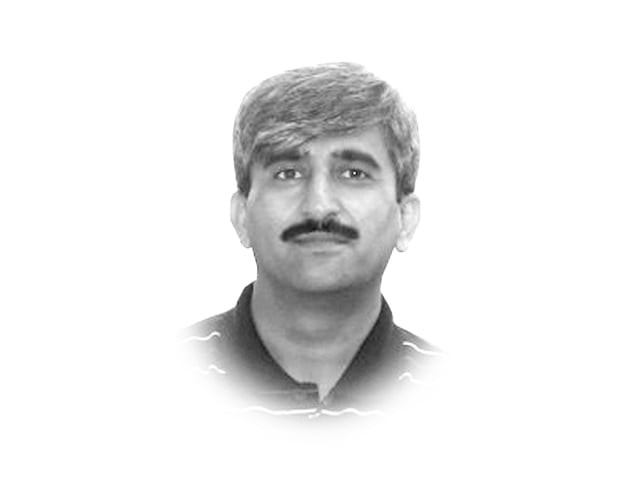Fighting breast cancer
All women over the age of 40 are at risk of developing breast cancer, with those over 50 being the most vulnerable

The writer is a child rights activist and development practitioner with
a Masters in Human Rights from the London School of Economics.
He tweets @amahmood72
It was a year-long painful and exhausting exercise not only for the patient but for the entire family. It wasn’t just the patient who was suffering from cancer; the entire family seemed to be suffering as well. The family was under strain not just financially, but also in dealing with the constant travel between Lahore and Mardan that was a requisite, and in dealing with inquiries from friends and family, who were largely unaware about breast cancer and how to deal with it. All this was an ordeal for the patient and her loved ones, with the illness proving to be a huge drain on their savings, pushing them from a stable financial position into debt.
All women over the age of 40 are at risk of developing breast cancer, with those over 50 being the most vulnerable. Birth control pills, hormone replacement therapy, not breast-feeding after having a child, having two to five alcoholic drinks a day, weight issues and lack of exercise can amplify the risk. Although the lump or a mass, especially if it is painless, hard and has irregular edges, is a well-known symptom of breast cancer, there are other possible symptoms as well, including general swelling in the area, skin irritation, pain and discharge — though such symptoms could also be indicators of a minor illness and not necessarily cancer.
To my pleasant surprise, Pink Ribbon, an NGO, carried out commendable awareness-raising initiatives last month, which was dedicated to creating awareness about breast cancer and a number of events were held for this purpose. There is, however, still a need to focus on creating even more widespread awareness and protecting lives. As mentioned in an October 6 editorial of this paper, “It [breast cancer] is the most frequent malignancy to occur in women and accounts for 38.5 per cent of all cancers in women with a staggering 90,000 new cases every year, and as many as 40,000 deaths. Out of local cases, 43.7 per cent are judged to be ‘advanced’ — a total that could be significantly reduced with timely intervention.”
The above statistics are a grim reminder of the fact that it is high time that breast cancer was taken seriously and organisations like Pink Ribbon are supported. It is vital that other than the handful of NGOs and health professionals, civil society at large, parliamentarians, the print and electronic media and people from all walks of life join hands to effectively respond to the deadly disease so that lives can be protected. I have yet to find an organised programme being run by the federal or provincial governments that focuses on a disease that affects such a large number of the population and has such long-lasting effects. I think it will be good if people like Maryam Nawaz Sharif, Aseefa Bhutto Zardari and Bushra Gohar, along with many more leading female social and political figures start speaking about the disease and focus on prioritising it on the agenda of the federal and provincial governments. Although prevention may not be possible, a timely diagnosis can save many lives and reduce the associated complications.
Before I set out to do the necessary research for this piece, most of which was done through the help of the Pink Ribbon website as well as other relevant sources, I was unaware that men could also contract breast cancer, though it is 100 times more common in women than in men. It is, therefore, very important that there is widespread awareness in society about breast cancer. Awareness among men about the disease is key because their support to women is of critical importance to ensure timely intervention. Men’s awareness is also important so that they can focus on the prevention aspects and focus on reducing those risk factors that are avoidable, such as being overweight and not exercising.
Published in The Express Tribune, November 7th, 2015.
Like Opinion & Editorial on Facebook, follow @ETOpEd on Twitter to receive all updates on all our daily pieces.















COMMENTS
Comments are moderated and generally will be posted if they are on-topic and not abusive.
For more information, please see our Comments FAQ